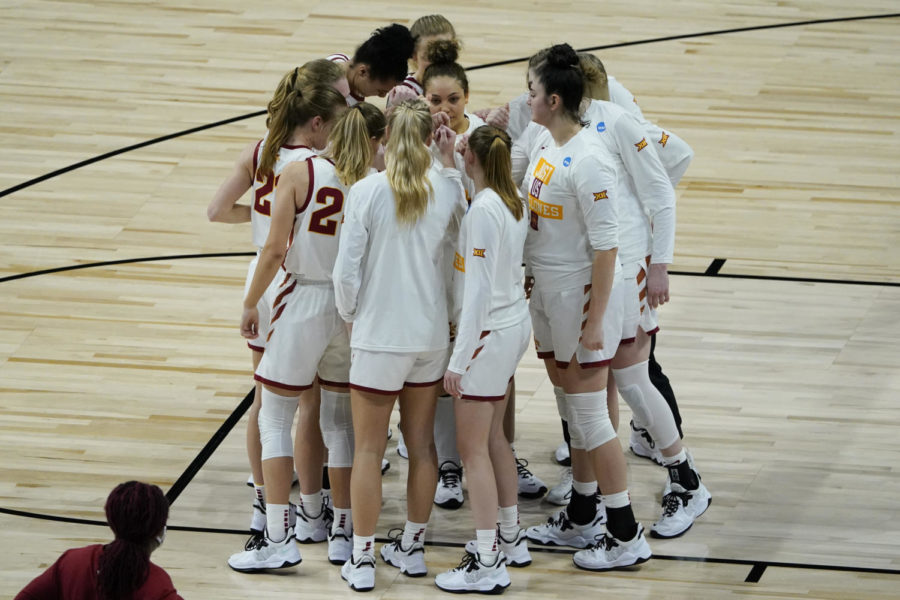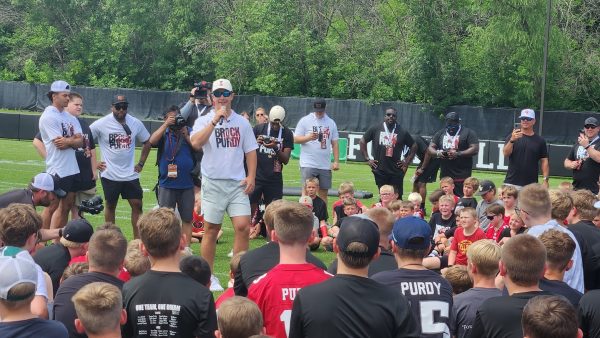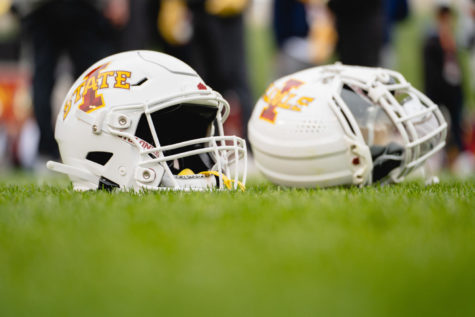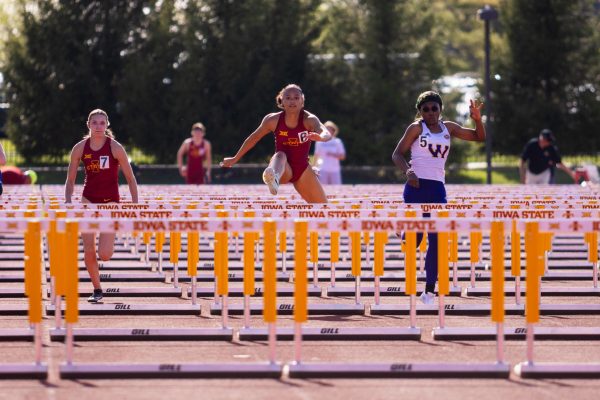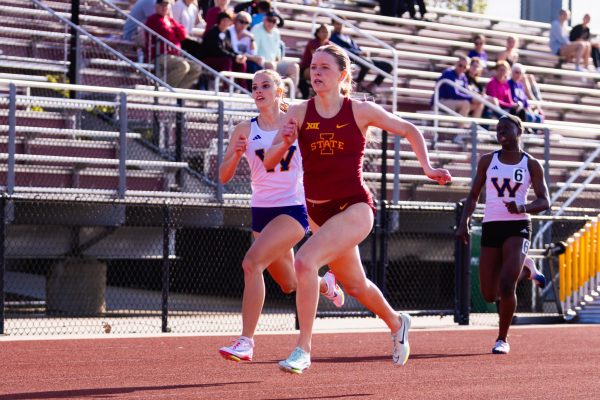Fennelly opens up about the Cyclones’ commitment and fight during a special season
April 4, 2021
Following their second-round exit from the NCAA Women’s Basketball Tournament at the hands of Jordan Nixon’s buzzer-beating floater, hearts were broken inside the Iowa State women’s basketball program.
After a tough loss to end a historic 2020-21 season, Iowa State Head Coach Bill Fennelly opened up about what the team meant to him and how hurt he was following the game.
“It hurts a lot and I’m dying inside that I don’t get to coach them tomorrow,” Fennelly said postgame. “This team is special and it’s killing me that I don’t get to [coach them tomorrow] but I got to [carry on], and I’ll remember that forever.”
The Cyclones ended the season with a regular-season record of 17-11 and 12-6 in conference play amid the COVID-19 pandemic and a lot of injury struggles.
The likes of sophomore Maggie Espenmiller-McGraw and seniors Kristin Scott and Madison Wise each spent some time on the sidelines this season, which the Cyclones had to overcome.
While Scott and Wise were still able to play a majority of the season, Espenmiller-McGraw saw very limited time on the court, which Fennelly felt was a huge miss for the team.
“Losing Maggie I think was a loss that no one really paid enough attention to,” Fennelly said. “She’s a very good player and she was the only returning guard on our team who played a lot and who could really help us, so losing her early put a lot of pressure on the freshmen.”
Despite injury struggles and having to deal with COVID protocols over the course of the entire season, this year’s team holds a special place in Fennelly’s heart.
Fennelly mentioned the togetherness of the team despite the COVID-19 pandemic making it hard for the team to connect in some ways.
With COVID-19 protocols, athletes shared the same roommate when on the road and sat in the same seats on busses and planes. This would seemingly make it difficult for the team to come together as one as they’re almost always separated, but Fennelly emphasized to the team to enjoy the moments when they were together.
“They did connect in a year that it was almost impossible to connect,” Fennelly said. “They handled it great and we really stressed when we were together that we try to enjoy it, control what we can and every day was a win, that’s what I would always tell them.”
A lot of the special moments the team had together this season were typically things people don’t get to see, whether it be the trips to a road game, practices or simply being together in the locker room after a game.
Fennelly found these moments to be his fondest with the team as he felt this year’s group was a great one to be around.
“For me, it was just the day-to-day consistency of what we did,” Fennelly said. “I think we practiced 127 times, we got tested probably more than that, we came to practice every day, we weren’t always good every day, but it was fun and it was a group that made it fun to go to work.”
Fennelly worked with a very young squad this year as well, which made the experience even more special for him. The Cyclones started three freshmen in almost every game this season in Lexi Donarski, Emily Ryan and Kylie Feuerbach, and they proved they were worthy to make the starting five every time they stepped onto the court.
Fennelly always knew the freshmen were capable of making an impact from early on in the season, but didn’t anticipate them to shine as much as they did this year.
“That was something that I did not expect, but obviously we knew they were talented,” Fennelly said. “I think the one thing that I was really proud of was when they had a bad day, which they did, they did not talk about it, they responded.”
With the squad being very young this year, injury issues and the pandemic, Fennelly didn’t know what to expect at the beginning of the season.
Fennelly is not too big on using the terms “overachieving and “underachieving” as he feels it may undermine the effort the team put in, but he said how the team did everything they could day in and day out.
“I think the team maximized everything that they could,” Fennelly said. “Every coach, every parent, every boss says ‘show up and do the best you can every single day’ and I thought our kids did that and I was blessed to be part of it on a daily basis.”

